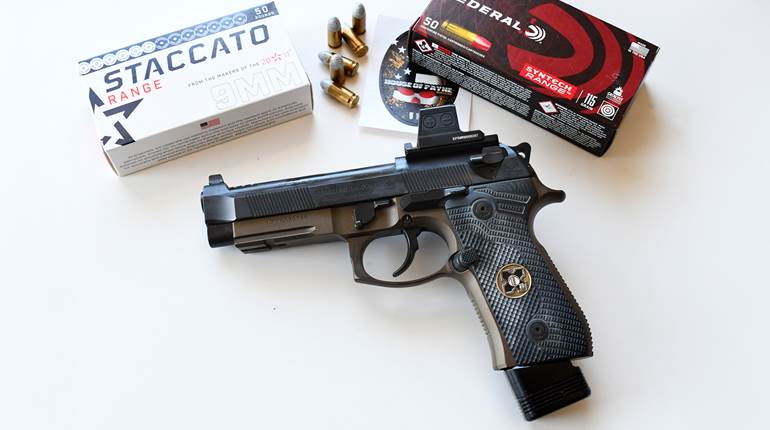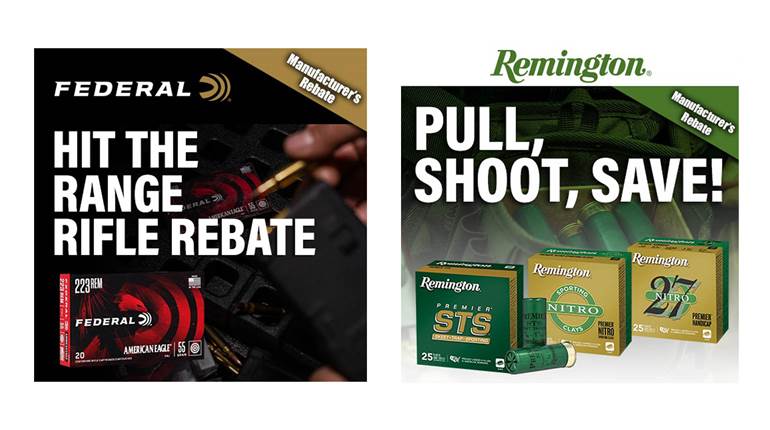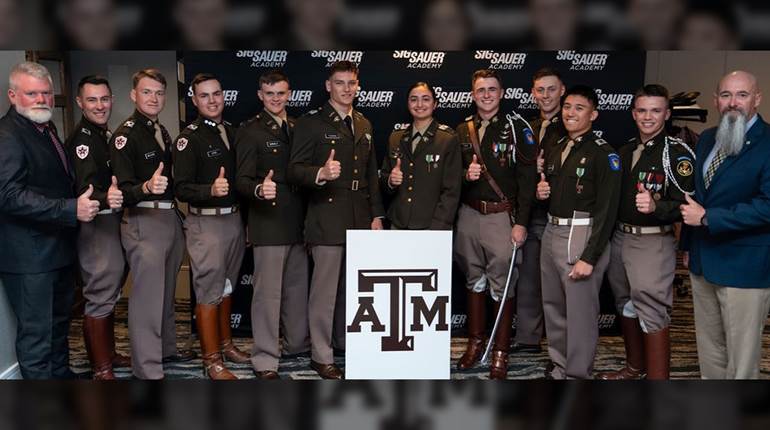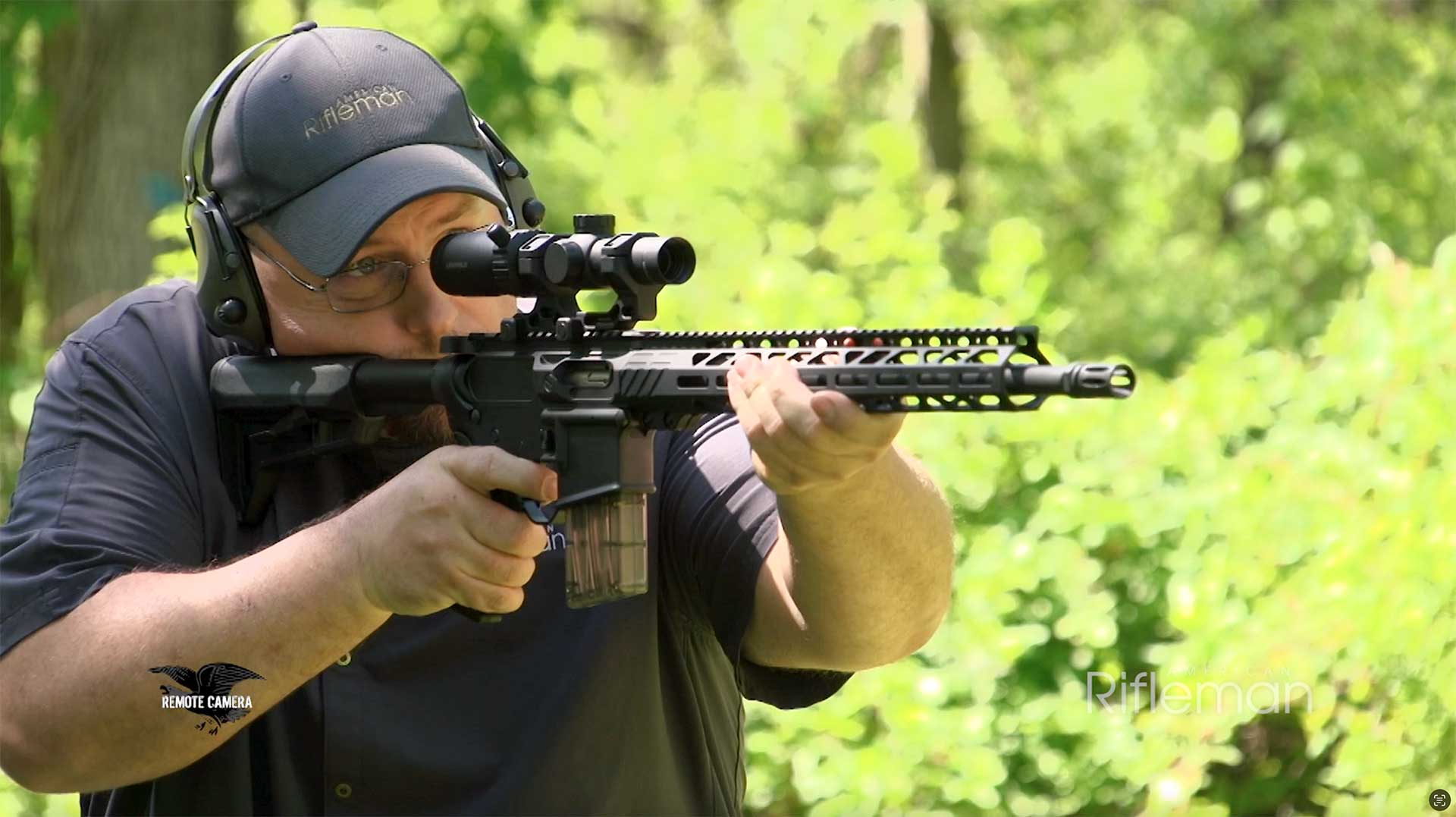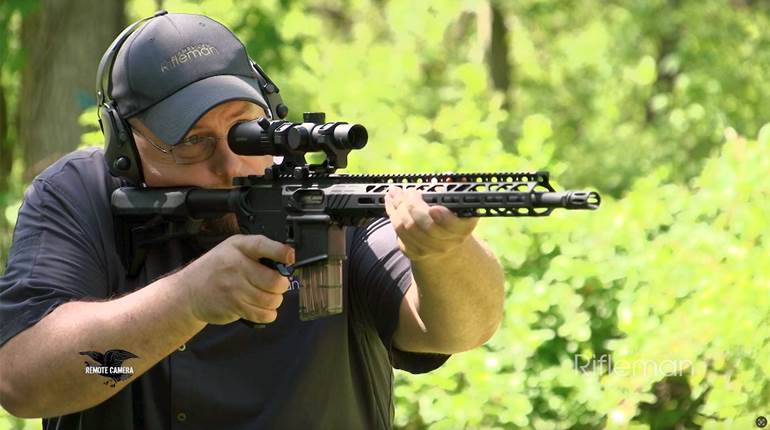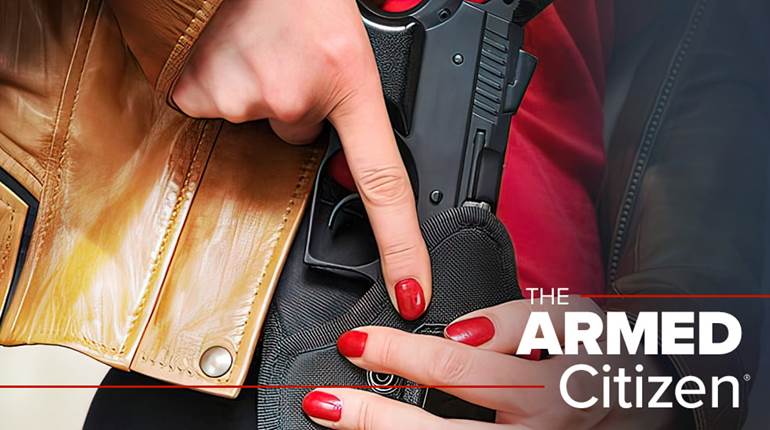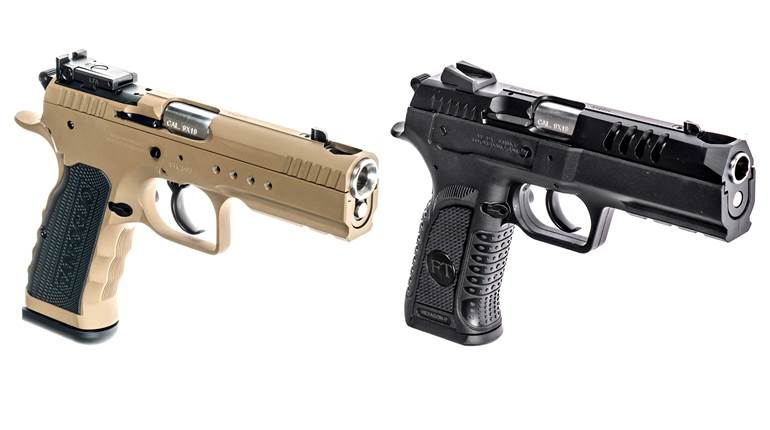
There are myriad makers of the time-tested M1911 pistol, but very few concentrate solely on “premium” M1911s, and rarer still are those that are successful at doing so. Count Nighthawk Custom among them. After all, the company began with four individuals in 2004 and now has approximately 95 full-time employees, including six who have been inducted into the American Pistolsmith Guild. What’s more, whereas the company began with two M1911s, the GRP and the Talon, it now offers more than 40 versions. Among them is the Counselor, which is reviewed here.
The single-stack, 9 mm Luger-chambered Counselor is an original member of the company’s Ambassador Series and has a forged, Officer-size aluminum frame. What distinguishes it from other Officer-size M1911s is the inclusion of Nighthawk’s patent-pending Flush-Fit Magwell, all while maintaining the dimensions of an Officer frame. This was achieved by cutting an Officer frame shorter and then adding a channel. The custom-engineered magazine well slides in from the front and only adds back the length of the frame that was removed.
The frame features an undercut trigger guard that permits even large hands to achieve a full grip, and there’s room inside for a gloved finger. Finely executed checkering on the frontstrap and aluminum mainspring housing, along with that of the custom Railscales G10 stocks, ensure a solid purchase. Titanium screws hold the stocks in place. Lastly, the frame, devoid of an accessory rail, has a black anodized finish, which matches the color of the slide and stocks.
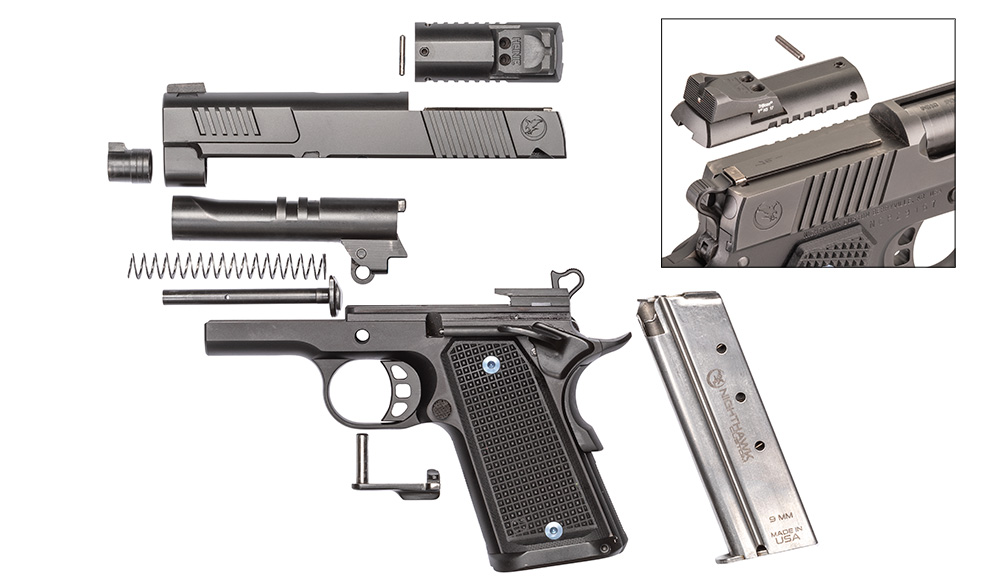
Outside of the company’s new bobbed-concealment beavertail grip safety, the fire controls—trigger, slide stop/release, safety and magazine release button—are non-bilateral in design and traditionally located. Concerning the tri-cavity (skeletonized) trigger, it is custom set between 3 lbs., 8 ozs., and 3 lbs., 12 ozs. According to a Lyman Trigger Pull Gauge, our sample averaged 3 lbs., 12 ozs., exactly. As for the characteristics of the pull, movement was nearly imperceptible and glass-smooth—certainly among the best we’ve encountered—and the reset was exceptionally short. The magazine-release button cleared empty magazines with authority.
Hand-fit to the aluminum frame is a steel slide with a nitride finish—just like the controls. Immediately noticeable are the cocking serrations. Instead of “negative” serrations, which enhance purchase through the creation of slots, the Counselor employs “positive” serrations that protrude outward. Although minimalist in length and width on the fore of the slide, they work wonderfully and are more aesthetically pleasing than the more aggressive serrations found on the rear of the slide.
Topping the standard slide are a Trijicon tritium front sight and a Heinie Straight Eight SlantPro rear sight. However, at our request, the Counselor came with the Interchangeable Optic System (IOS), to which a Trijicon RMR was added. The cost for the cut is $350, while the optic plate runs $149.
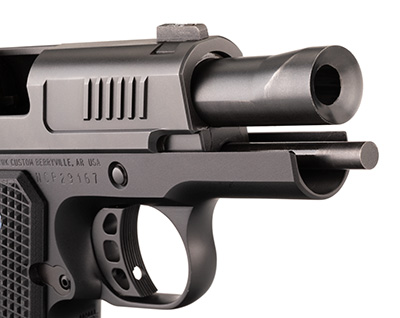
The internals receive special attention. The extractor is tuned and polished, and the firing pin stop is hand-fit. All ignition components are hand-polished, too. A stainless-steel, .38 Super-size firing pin is used. The Counselor’s 0.695"-thick, 3.5"-long barrel is hand-fit and features an integral, polished feed ramp. Regardless of bullet profile, feeding was flawless. The match-grade, throated barrel ends in a deeply recessed crown. Accompanying the Counselor are two, eight-round, single-stack magazines. Made from stainless steel and featuring a steel follower, the U.S.-made magazines have witness holes to determine the rounds remaining.
Nighthawk Custom M1911s are hand-built from start to finish by one gunsmith—hence the company’s “One Gun. One Gunsmith” motto. Our sample was built by Brian Chaney. Furthermore, all machined parts are intentionally made oversize so that they have to be fit by hand. Given the level of detail that goes into crafting the Counselor, it stands to reason that it’d perform admirably. We weren’t disappointed.
Given its abbreviated barrel and intended role as a carry gun, we opted to test the Counselor at 7 yards. Nestling it atop a Browning sandbag rest, we shot five consecutive, five-shot groups with three different defensive loads varying in nose profile and weight: Hornady American Gunner 115-grain XTPs; Lehigh Defense 115-grain Xtreme Penetrators; and SIG Sauer M17 124-grain +P V-Crowns. The full results of accuracy testing are nearby.
The sample Counselor was phenomenally accurate; in fact, the average for all 75 shots was 0.76", and that includes the largest groups. Of the three loads, the smallest individual group (0.34") and mean (0.52") were created using the SIG ammunition. Cycling was impeccable during the test—exactly as you’d expect from a hand-built firearm.
With accuracy testing completed, we continued firing a variety of target and defensive loads through the Counselor to ensure its reliability. Zero issues were encountered. Interestingly, the company does not guarantee the reliability of its handguns when using steel- or aluminum-cased ammunition, but +P factory ammunition, such as the M17, is safe.
Given the pistol’s 27.9-oz. weight, allowance for a full grip and 9 mm Luger chambering, the Counselor is great fun to shoot. The pistol’s craftsmanship and finish are second to none. There are no sharp edges or errant machining marks to snag when carrying it, and the movement of parts, such as the slide, is glass-smooth.
Frankly, there is nothing not to like about the Counselor, and nothing to improve upon, either. Seldom is that the case, but it holds true here. As you can probably surmise, the Counselor isn’t inexpensive—and nor should it be. It’s hand-built functional art by one of the industry’s best pistolsmiths. And, like other art, consider it an investment.












